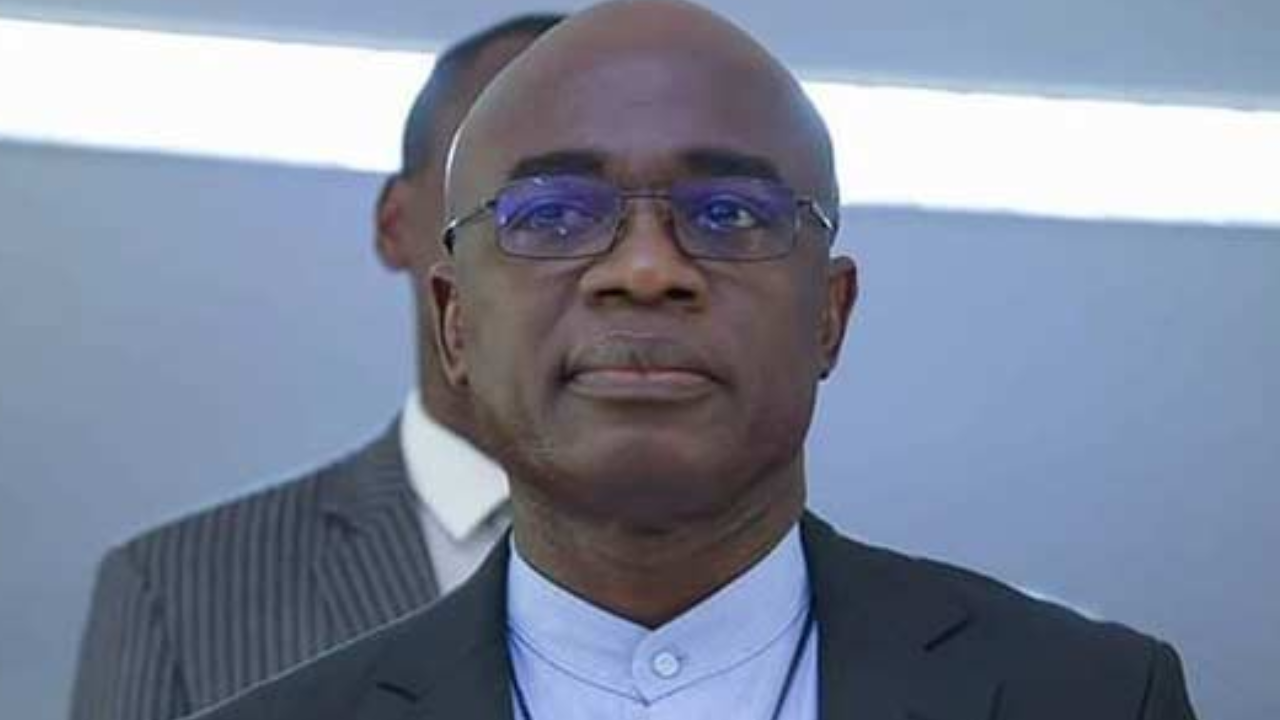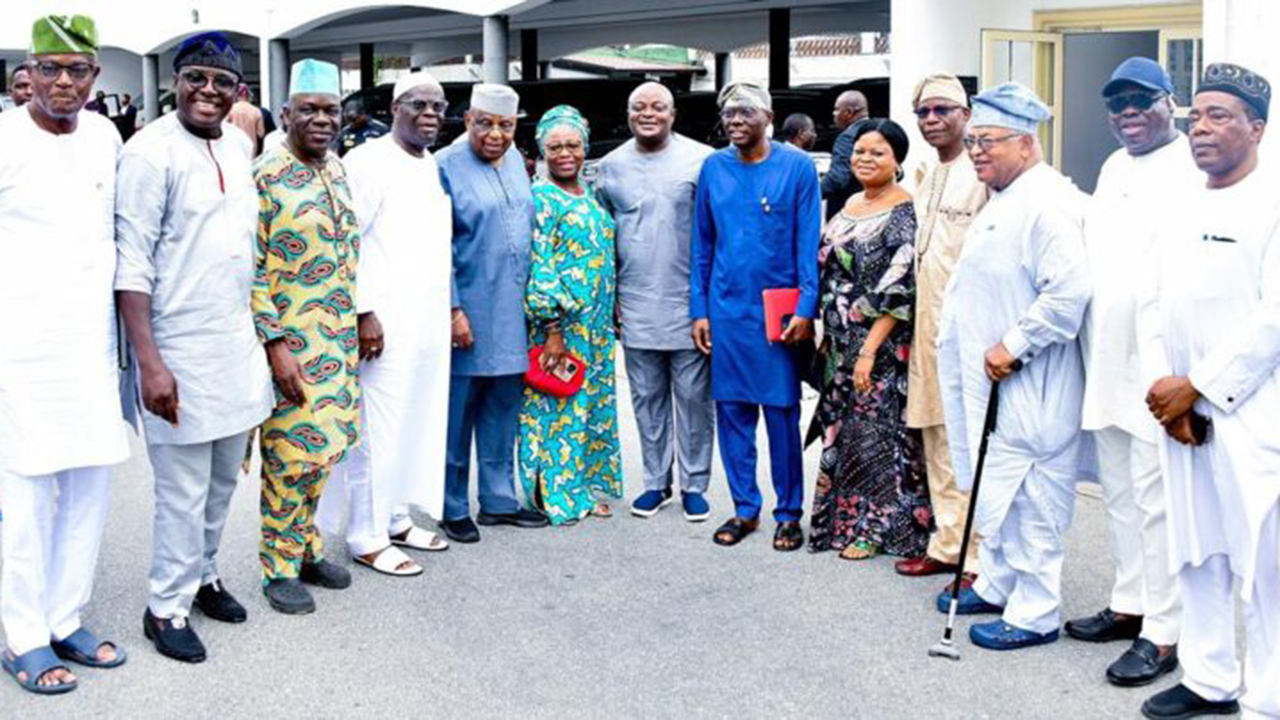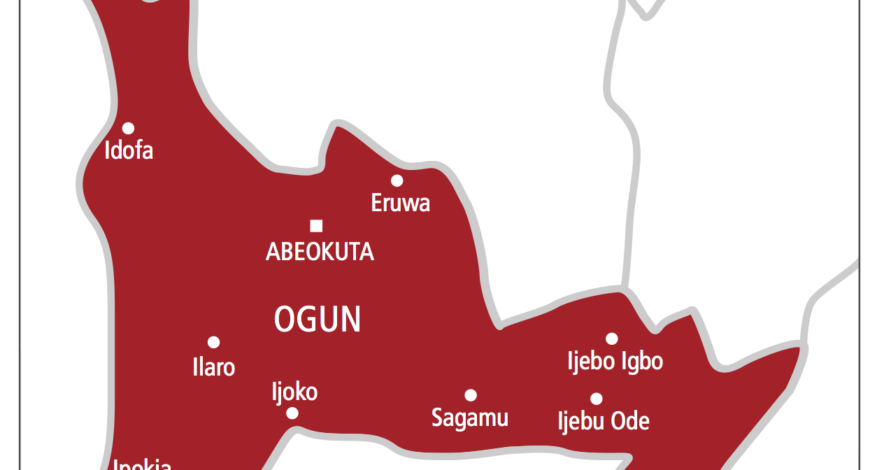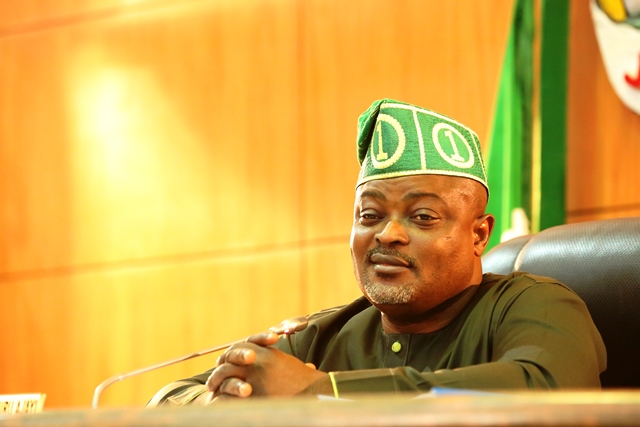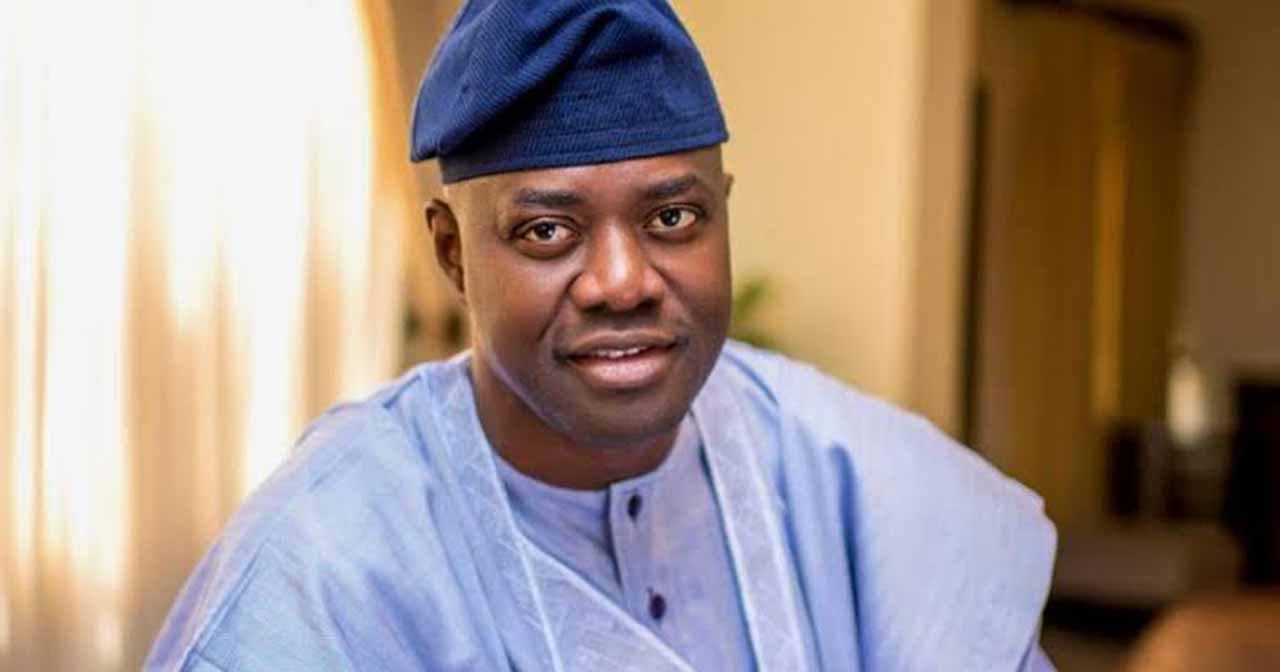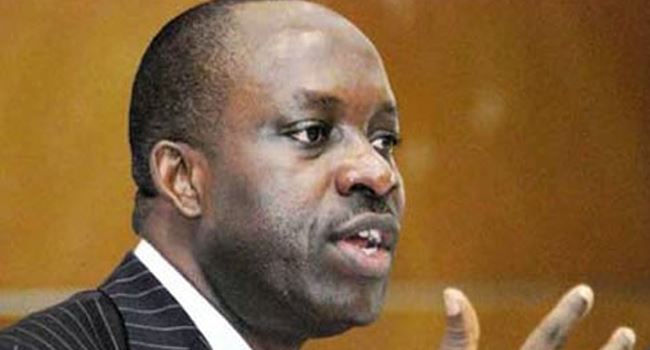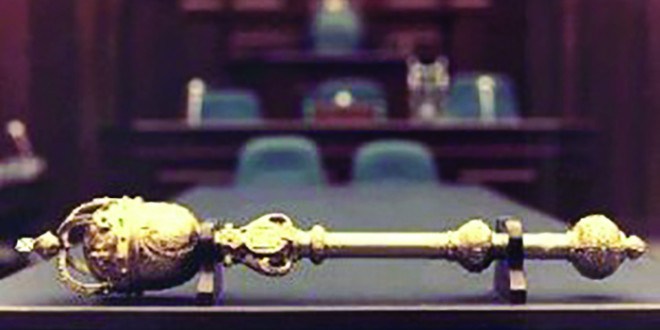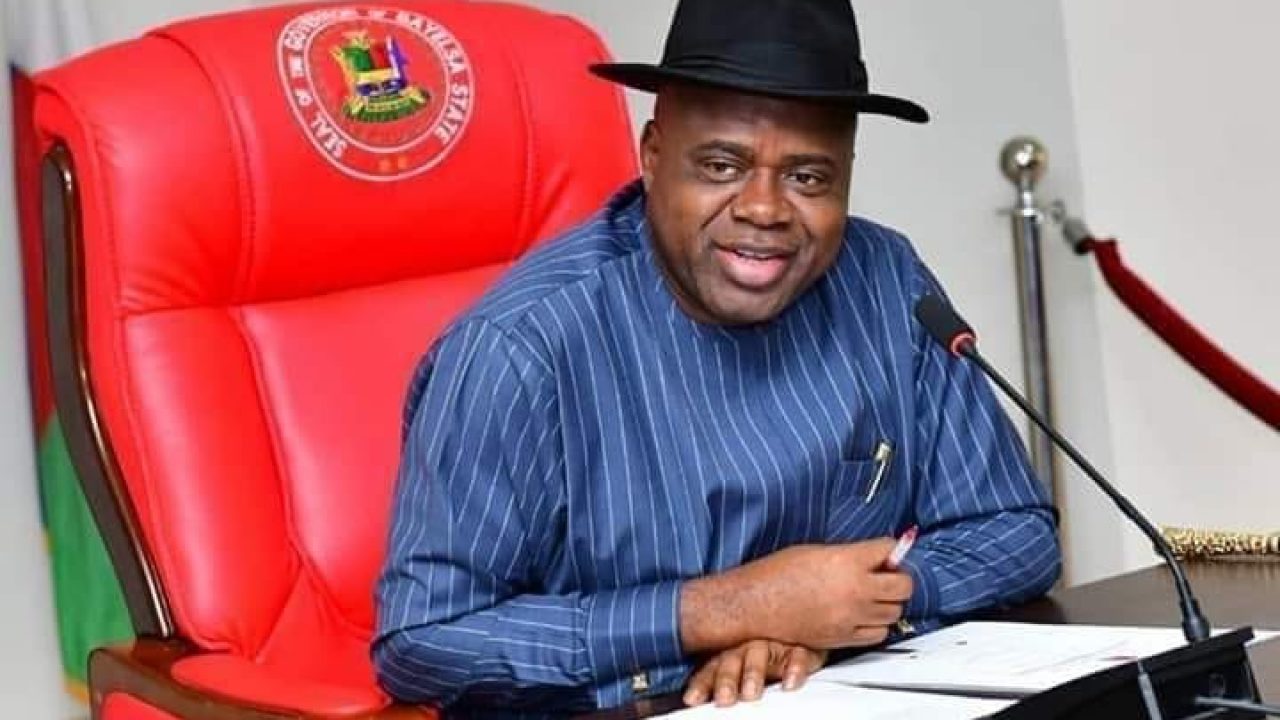By Alabi Williams
That flexing of muscles in Lagos between Governor Babajide Sanwo-Olu and Speaker Mudashiru Obasa, over the list of commissioner-nominees is on the surface a minor matter that could have been trashed via phone chats between the two political leaders. But it dragged beyond what Lagosians were used to. Third parties joined the fray, in addition to commentators, some who were quick to place culpability, cleverly avoiding to link a complicit hegemony.
As we know already, similar face-offs are rampant in other jurisdictions across the country. In some, you cannot question the chief executive of the state over his list of commissioner-nominees or whomever he decides to hire to assist his work. You cannot even debate any matter with some governors, talk less of inviting them to listen to a body that has no mention in the Constitution.
As they say in local parlance, who born you to query the governor on whatever subject he decides upon under his command? You could do that outside his ruling party, where opposition characters rant forever and no one hears them.
In the first place, who is a Speaker to challenge some of our governors? In any case, who appointed the Speaker and from where will he draw the energy to engage in media interviews where he refers to the governor as a colleague, and muster the guts to challenge his decisions? It is no exaggeration if one laments that nearly all governors have their legislature in their inner pockets. In Lagos, the legislature is obviously not in the governor’s pocket, but there are bigger pockets designed for that assignment.
Maybe we’re jolted because of the optics we’re used to, of a Lagos that is infallible, a democratic model with the three arms working harmoniously and every side keeping religiously to their side of the bargain since 1999. There must be some spell that steadies such rhythm, preventing it from shattering into pieces.
A little history first. Prior to and about 1999, respectable elders of the Afenifere socio-political group took it upon themselves to groom the first set of governors for the Southwest. They did that in a painstaking effort to ensure equity and justice in the house, after democracy was rescued from the military. The dispensation that was to come looked promising but delicate; the pains of June 12 were yet to heal. The elders tried to put the first-11 of their compatriots into offices as governors and lawmakers, using the platform of Alliance for Democracy (AD). Everything seemed good.
At the 2003 general elections, Lagos became the only surviving AD state after the Peoples Democratic Party (PDP) invaded South west. There was suspicion that the elders didn’t conform to the rule book. Consequently, the core of Afenifere was disbanded by loyalists of Governor Bola Tinubu, who announced another version they branded as Afenifere Renewal Group (ARG).
Tinubu rechristened what remained of AD and formed a new party, the Action Congress (AC); which later became the Action Congress of Nigeria (ACN), which was used to negotiate space within the All Progressives Congress (APC).
Lagos became a model, in the sense that instead of being under the tutelage of Afenifere, Tinubu became the politburo and sole administrator, even after serving his two terms as governor. He also became the final arbiter on matters of appointments and clearing candidates for governorship, legislative and municipal elections. A smart administrator, he adapted the Governor’s Advisory Council (GAC) format from some U.S. province and assembled a team to assist in the task of keeping the state under tight control.
Nobody became anybody politically without the endorsement of the godfather and the GAC party elders. The members, for their usefulness and loyalty got rewarded with the status of preference shareholders in the Lagos project. Their children and friends can be recommended as commissioner-nominees or offered tickets to run for elective offices. That is the system that has so far stabilised the Lagos polity despite minor distractions.
A little reminder. Dissidents who try to subvert this system do not survive long in their strange endeavours before they scurry back to the fold. Absolute loyalty is the key and some have testified that the Leader is generous and he forgives. Musiliu Obanikoro and others can testify to that.
After Tinubu’s tenure, successive governors of Lagos have been plain technocrats who just love to work. They do not nurse overt political ambition. Maybe that is how the Leader designed it to avoid the temptation that overcame lucifer.
The other time, it was sheer hard work and popular goodwill among Lagosians that prevailed to earn Babatunde Fashola a second term. When Akinwunmi Ambode became overzealous in the bid to quickly transform Lagos, his speed was way ahead of the recommended limit. The Leader and the GAC demobilised him in his tracks.
And now, Sanwo-Olu, after securing his second term in a hard-fought election, could have been tempted to move without political clogs. He has a mega city to also transform and he thinks more technocrats are the ones to get the job done. It is squarely his constitutional responsibility to decide the type of cabinet he needs to deliver, so he thought. Not so fast, the Speaker charged.
Though the matter has now been resolved largely. To be clear, the 1999 Constitution of the Federal Republic (as amended) in Section 192(1) recognises that the governor shall establish offices of Commissioner. In Section 192(2), it provides that the State House of Assembly shall confirm nominees for office of Commissioner, provided the governor conforms with the provisions of Section 14(4).
Section 14(4) recommends that the government of a state, a local government or agencies of government shall be inclusive of all persons and segments to provide a sense of belonging to all. It is expected that a governor will take into account the diversities in the state and demonstrate fairness in selecting his team.
Where an Assembly tries to be difficult without reason, Section 192(5) gives the governor a little veto power, if after 21 days the Assembly refuses to respond. Remember how the old Kaduna Assembly frustrated the late Balarabe Musa who was of a minority party during in the Second Republic.
That is not the case here. The Lagos Assembly responded, except that the Speaker wanted more politicians instead of surplus technocrats. He added dimensions that were not necessary when he began to compare political antecedents of his with that of the Governor. It became a context for power and the GAC stepped in to prevent escalation.
In many states, even when there are diverse interests to accommodate, no group intervenes to lecture a governor on how to administer the state, apart from the judiciary. But the GAC enjoys that privilege and did invite the Governor and Speaker to a roundtable where the matter washandled.
Why Lagos governor seemed helpless. Lagos operates a different template whereby the governor does not nominate who becomes Speaker of the state’s legislative arm. Elsewhere, governors decide who becomes Speaker and in fact, the entire leadership of their legislature. That is why our governors are very powerful. The inherent weakness in the system in Lagos is that the Speaker reports to a higher authority and when that authority gets busy outside Lagos, chaos might set in.
President Tinubu is the higher authority and by reason of his present higher engagements, Lagos affairs cannot occupy his time like before. Later, if not sooner as we are beginning to see, more political authorities will graduate to begin to assert themselves in the state. The Speaker may just be the convenient tool in the hands of some GAC members who want to extract some concession or harass the gentleman governor.
The Speaker as leader of the legislative arm made up of grassroots politicians did not hide the fact that it’s all about politics. His calculations may well be beyond 2023, whereas Governor Sanwo-Olu is more interested in finishing his second term well.
To be fair, after that scary presidential election of February 25 in Lagos, which the Labour Party (LP) clinched with little effort, it took redoubled strokes for the APC to re-assert dominance in the governorship. The Speaker can argue behind-the-scene that technocrats did not achieve that feat, but politicians, GAC members and masquerades, who were mobilised on the eve of that election to create maximum effect.
Going forward, I don’t see the present Lagos system working well in the nearest future. The governor should not be made helpless and subservient to other forces in the state. Yes, we desire an independent legislature, which is not even the case here. We do not want an authoritarian governor in Lagos, yet, the governor should not be weakened by a higher authority who must dictate everything. Time to let go.
In the emerging political configuration of Lagos, it is only good governance and effective youth mobilisation and participation that will determine the next set of rulers of the state. Brigandage and thuggery will soon become a thing of the past as more technology is engaged. So, let the strategy change from one-man rule to one-man one-vote.
As President Tinubu gets busy with Nigeria, let him begin to cultivate worthy hands that can look after Lagos. The GAC, before it is disbanded should be democratised to accommodate fewer partisan figures, to include persons who can dispense justice. For instance, Akinwunmi Ambode did not get justice in GAC when it mattered, because the council as presently constituted does not have justice in its DNA. It is too pliable and subservient to the Leader.
I recommend Babatunde Fashola, former National Legal Adviser to APC, Dr. Muiz Banire, Akinwunmi Ambode, former deputy governor, Femi Pedro and such like minds to be active in GAC. Even though the council is not listed in the Constitution, it can be useful for intimacy and house clearing.That was the original and noble idea behind Afenifere.
